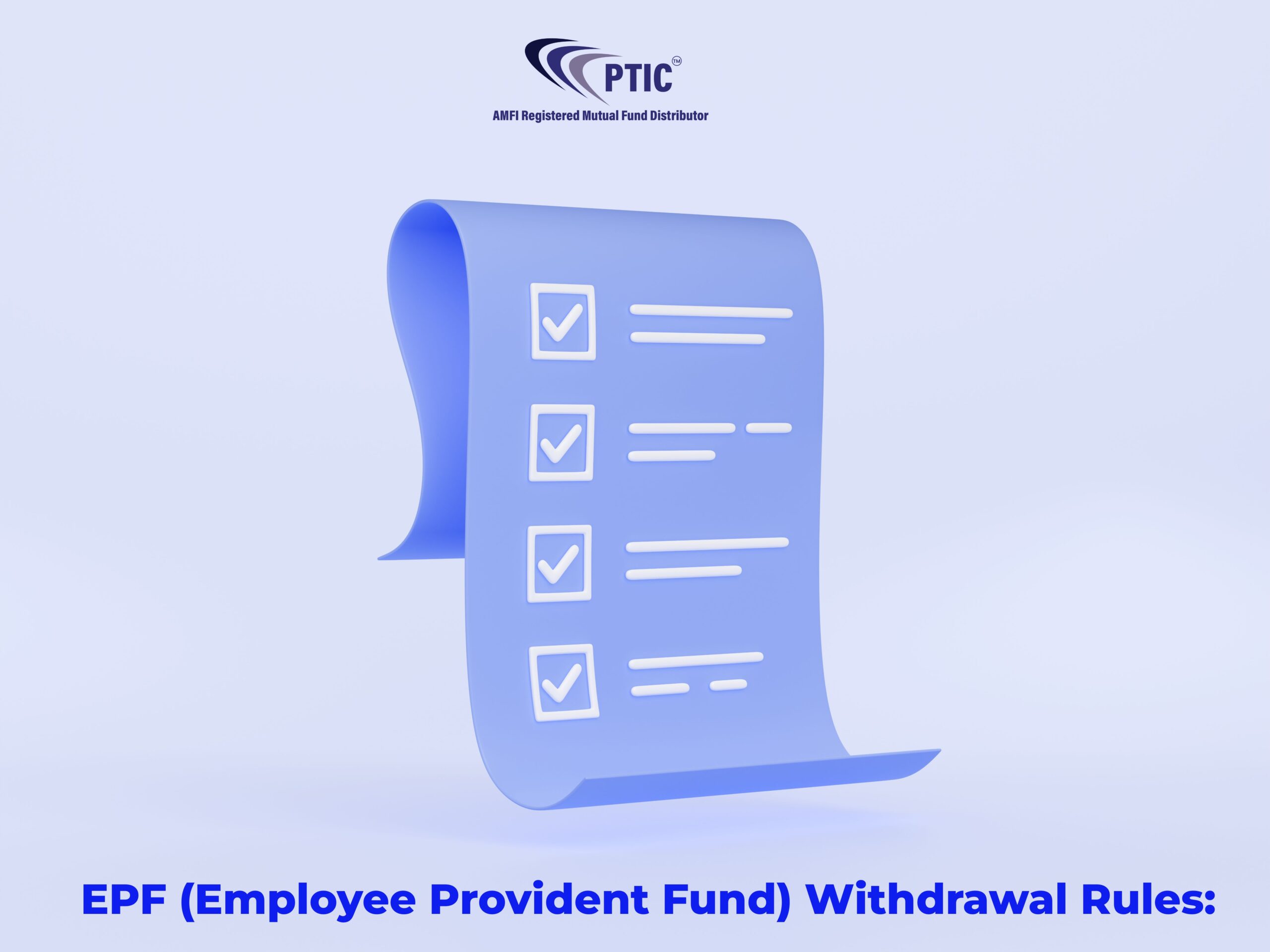The Employee Provident Fund (EPF) is one of the most popular retirement savings schemes in India, offering employees a safe and reliable method to save for their post-retirement years. EPF is governed by the Employees’ Provident Fund Organisation (EPFO), and both the employee and employer contribute to this fund monthly. Over time, this contribution grows with interest, providing financial security in retirement. However, there are specific rules and conditions under which an employee can withdraw funds from their EPF account. At PTIC India, we are here to help you understand these rules and make informed financial decisions.
Types of EPF Withdrawals
1. Full Withdrawal
Full EPF withdrawal can only be made under certain conditions, such as:
– Retirement: An employee can fully withdraw their EPF balance after reaching the age of 58, which is considered the retirement age under EPF guidelines.
– Unemployment: If an individual is unemployed for more than two months, they are allowed to withdraw 75% of their EPF balance. If the unemployment period extends to more than two months, the remaining 25% can also be withdrawn.
2. Partial Withdrawal
EPF rules also allow for partial withdrawals under specific circumstances, including:
– Medical emergencies: Employees can withdraw up to six times their monthly salary or their total employee contribution for medical treatment.
– Education: EPF withdrawal for the education of oneself or their children is permitted after completing seven years of service. The amount allowed is 50% of the employee’s EPF contribution.
– Marriage: For marriage, employees can withdraw up to 50% of their EPF balance after seven years of service.
– Home purchase or construction: EPF can be used for the purchase or construction of a home after five years of service. Employees can withdraw up to 24 times their monthly salary for this purpose.
– Repayment of home loan: Employees can withdraw up to 36 times their monthly salary for the repayment of a home loan.
EPF Withdrawal for Retirement
Upon retirement, an employee can withdraw the full EPF amount, which includes both the employee’s and employer’s contributions along with accrued interest. The EPF can be withdrawn at the age of 58. However, if an employee chooses to retire early, they can withdraw 90% of the total EPF balance after reaching the age of 57.
EPF Withdrawal Rules for Early Exit
If an employee resigns before completing five years of continuous service, the EPF withdrawal may be subject to taxation. The portion contributed by the employee remains tax-free, while the employer’s contribution and interest earned may be taxed if the withdrawal is before five years of continuous service.
EPF Withdrawal Process
1. Online Process:
EPF withdrawal can be done online via the EPFO’s official portal. To initiate the process, employees need a Universal Account Number (UAN) and should ensure that their Aadhaar is linked to their EPF account. The process is streamlined, and once the withdrawal claim is submitted, it generally takes 10-15 working days for the funds to be credited.
2. Offline Process:
Employees can also withdraw their EPF by submitting a withdrawal form to the EPF office. There are two forms: Form 19 (for final settlement) and Form 31 (for partial withdrawal). These forms need to be filled out and submitted with relevant documentation to the EPFO office.
Tax Implications of EPF Withdrawal
– Before five years of service: If an employee withdraws their EPF balance before completing five years of continuous service, the amount withdrawn will be subject to tax. The employer’s contribution and interest earned will be added to the employee’s income for that financial year.
– After five years of service: EPF withdrawals after five years of continuous service are exempt from tax.
Conclusion
Understanding EPF withdrawal rules is crucial for making informed decisions about your savings and financial well-being. At PTIC India, we help employees plan their retirement and guide them through the complexities of financial planning, including EPF and other retirement savings schemes. Whether you are planning for retirement or need access to your EPF for specific needs, our experts at PTIC India are here to help you make the best decisions for your financial future.
Contact us
Phone: +91 9709107555
Website: pticindia.com









